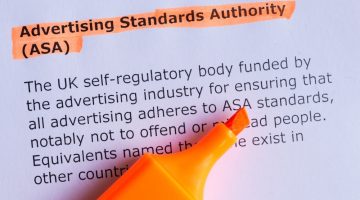Reduce your corporate tax and earn interest on it

Reducing the tax burden is a vital aspect of effective company management. The UK’s legislation offers us three completely legal ways to reduce corporate tax, such as claiming expenses, paying yourself a salary, and spending profits. We explain them separately and show how to reduce corporate tax with their help with examples.
Table of Contents
Calculating your corporation tax
Even though the current 19% of the UK’s corporation tax is one of the lowest in Europe, it’ll be lowered to 17% by April 1, 2020, according to the government plans. To calculate your corporation tax you need to sum up all the profit you make.
As a limited liability company in the UK, you make a “trading profit” – the main source of business income; “investment profits”, when you earn on interest, dividends, income from the sale of securities or assets, and other income received using investment instruments; and “chargeable gains” when you sell an asset for a higher price than you paid for it.
For example, imagine James, the sole director at James Delivery, Ltd. and his profit comes directly from orders for transportation of bulky goods. Last month he made £35,000 on bulky deliveries, £10,000 by selling one of the trucks and £3,000 on the London Stock Exchange.
James’s total profit is £48,000 and 19% of it is £9,120 he should pay in taxes.
Claim your business expenses
Record all expenses related to your business, whether it’s a £3 pen or a car for worth tens of pounds, everything is subject to declaration. Also, such expenses include contributions to a pension fund and professional insurance.
Remember that you only need to declare expenses for business use.
Always record your expenses, whether it’s a £3 pen or a £40,000 luxury car, everything should be declared to lower taxation. Also, such expenses include contributions to a pension fund and professional insurance.
Note, if you may have tax-free allowances if your annual gross trading or business property income is equal or less than £1,000, you don’t have to declare your expenses.
A list of business expenses for declaration:
- Office supplies like pens, printing costs, different computer software or any online subscription-based services
- Any overhead or service costs for accommodation and transportation. For example, it could be vehicle insurance, repairing, parking, fuel, hotel rooms, meals, etc.
- Credit charges, leasing, overdraft, hire purchases or alternative finance like Islamic banking
- Any unpaid invoice also is known as “bad debt”. This one is a pretty beneficial expense you can declare on unless you’re using the cash basis accounting.
- Marketing expenses like paid ads, web hosting, free samples distribution of your products, etc.
- Different expenses related to staff and employees: salaries, contract payments, pensions, insurance, bonuses and Employer’s National Insurance
- All the clothes that are necessary for your workers: uniforms, protective wear, costumes for special occasions like corporate parties
- If you work at home, you can also declare your mortgage and utilities costs like gas bills. But keep in mind that if your flat has several rooms, you’ll have to divide expenses so that only your part is declared.
- Charity donations
Remember, you should declare expenses that are for business use only.
Pay yourself a salary and distribute dividends
As an entrepreneur in the UK, you can reduce taxes if you pay yourself a salary or distribute dividends. Salary can be declared as a business expense, but your income is still a subject of the Income Tax plus National Insurance payments.
Dividends, in turn, are subject to another type of taxation. Its tax rate depends on your annual personal income known as tax band:
- The basic rate is 7.5% if your total income is up to £ 50,000 per year
- The higher rate is 32.5% if you earn up to £ 125,000
- The additional rate is 38.1% if your income is more than £ 125,000
If the amount of dividends does not exceed £2,000 allowance, then you do not need to pay tax. Anything higher than this amount is subject to standard income tax minus £2,000 allowance.
So, all that is required is to find the perfect balance between paying salary (don’t forget to calculate NIC tax and Personal Income Tax) to yourself as an employee and paying dividends, even if you are the only director in the company.
In most cases, if you’re above the Basic Rate tax band, it’s better to pay yourself a salary instead of dividends. Finding the right level between salary and dividends is a bit complicated and we will explain it thoroughly in future articles.
Claim capital allowances
Another absolutely legal way to reduce corporate tax is to invest your profit in further business development. A company can spend up to £1,000,000 on:
- equipment, machinery, business vehicles
- extracting minerals
- research and development operations
- ‘know-how’ (intellectual property about industrial techniques)
- patents
- dredging
- structure and buildings
After that, you can safely subtract this amount from your income and pay less income tax. For example, Roger bought a truck for £8,000 and subtracted its value from the profit, earning £12,000 instead of the original £20,000. Income tax is £2,280 instead of £3,800.
Get more information on what can be considered as capital allowances.
Have a party for your employees
The cost of an annual event for all employees, the cost of which does not exceed 150 pounds per person, can be deducted from the profit of your company. For example, Roger throws a party for his six employees, they spend £856, and therefore he will pay a lower Corporation Tax by deducting this amount from your profits.
Earn interest by paying HRMC in advance!
The tax service encourages early tax payments, therefore, is ready to pay 0.5% for this. At the earliest, when the tax office is ready to pay for the timely payment of taxes, it is six months and thirteen days from the beginning of your tax period.
Let’s briefly go through the possibilities of lowering income tax:
- Keep a record of all your business-related expenses and tell to HRMC about them
- Pay yourself a salary and distribute all other profits as dividends
- Don’t forget to claim every investment in business development and claim capital allowances
- Make your employees happy and organize an annual event for them. The HRMC will be happy for you, even if you are only one employee in your own company!
Remember to pay forward and earn your interest by being a good taxpayer.
Doing business is a test of character – doing business papers shouldn’t be. Osome helps entrepreneurs establish all the accounting and bookkeeping records online 24/7 via one cloud-based platform.
Read Also:

Dutch And Maltese Gaming Regulators Signs MoU To Prevent Illegal Gambling
The Purpose of MoU Under the MoU, there will be an enhanced cooperation between the…

Operators Pull Out Japan Casino Plans Amidst Uncertain Gambling Regulations
The casinos needed to submit tedious requirements before legalizing the business and face heavy taxes…

GrooveGaming Extends Contract With BetConstruct
The success of the merger showed a high demand for online casino products. GrooveGaming exploited…

Chile’s Casino Operators Receives Coronavirus Relief From Creditors, Investors
The gambling industry is among the industries which suffered the biggest losses. The casinos shut…

A Total Of 70 Gambling Ads Have Been Found By ASA, UK in Q2 2020 on Sites Familiar With Young Audience
The authority has not yet declared the names of the operators, which have been running…

Shape Games Co-Founder Indicates Their Plan To Go Completely Native
The co-founder states that this transformation is in response to tech-giant Apple's revolutionary announcement made…